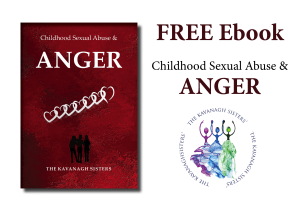If you have found your way to our page you are most likely a kindred spirit or someone seeking answers to difficult questions, either way we are happy to help.
Let us introduce ourselves:
We are three sisters, Joyce, June and Paula Kavanagh. We are three of ten children, six boys and four girls born and raised in Dublin, Ireland in the 1960’s and life was very different then.
Poverty was our norm. Growing up we didn’t notice any difference between us and everyone else. It was only when someone came into in school with matching white socks or when they took out a packet of new crayons from their schoolbag, that we became aware of things we didn’t have.
With so many children in our house, it was a case of first up best dressed every morning! Our Mother worked full-time, so we children reared each other. This was all the while our family kept a terrible secret.
Our father sexually abused all the girls on a daily basis. It’s hard to imagine we lived through all that that entails but we did. We all emerged out the other end broken, damaged beyond repair…….. or so we thought.
We are here today, repaired, for lack of a better word, to a large extent but still working on it.
No woman is ordinary and, so we consider ourselves extraordinary women. We can only now look back with gratitude on what we once considered the cause of all our misery in this life.
Our experience has set us on a path of self-discovery. It set us on a journey that has brought us more growth and understanding of not only ourselves and our behaviours but how that understanding can be shared as it has worldwide application because we are more alike than not.
We are now the proud Authors of two books. ‘Click, Click‘, was our first book released in 2011 and Why Go Back? 7 Steps to Healing from Childhood Sexual Abuse is our new book.
Click, Click is the story of our abuse and it took us 20 years to write. It was because it was a very difficult book to write. We would work on a piece and then had to walk away from it, sometimes for years at a time before we could return.
That book haunted us, but we knew we had to complete it. No matter how difficult it was to write, tackling what we suffered as children at the hands of our father cleared the space for us to move forward. And that’s exactly what we did.







